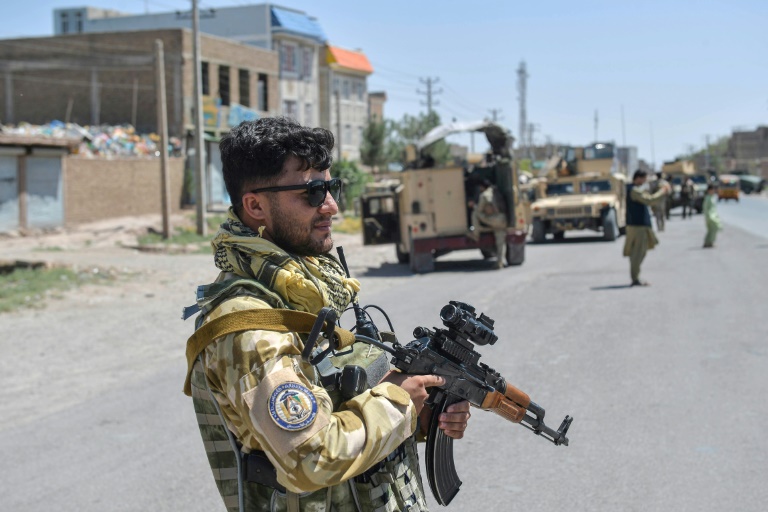Central Asian leaders sounded the alarm over the spiral of war in neighbouring Afghanistan at a summit in Turkmenistan Friday, as US-led forces withdraw from the country and the Taliban advances.
The talks in the resort town of Avaza on the Caspian Sea came after the militant group made sweeping gains in provinces near Tajikistan, Turkmenistan and Uzbekistan — the three ex-Soviet countries bordering Afghanistan.
After weeks of a blistering offensive through the countryside, the Taliban is now challenging Afghan government forces in several large cities.
In a joint declaration, the five Central Asian countries — Kazakhstan, Kyrgyzstan, Tajikistan, Turkmenistan and Uzbekistan — pledged to “provide all possible assistance” towards achieving peace in Afghanistan.
The Taliban has established official contacts with both Turkmenistan and Uzbekistan as well as Russia and China, two important players in the region.
Its charm offensive has included guarantees to support and secure regional economic projects, including a planned multi-billion dollar energy pipeline that would connect Turkmenistan’s giant gas reserves to markets in India and Pakistan through Afghanistan.
This cordiality is a stark contrast to the last time it was in power, when Central Asian countries were offering support to local and international forces trying to unseat the Taliban.
But analysts argue that a growing security vacuum in Afghanistan can pose its own threat to Central Asia and its growing economic cooperation with Kabul.
Tajikistan’s President Emomali Rakhmon on Friday noted that the Taliban now controlled the entirety of Afghanistan’s border with his mountainous country of 9.5 million people.
“A number of terrorist organisations are actively strengthening their positions in these areas,” Rakhmon said in his address to the summit.
His Uzbek counterpart Shavkat Mirziyoyev called for a full ceasefire and “mutually acceptable negotiated compromises” at talks.
The United Nations Security Council is set to hold an open meeting Friday on the deteriorating situation in Afghanistan, diplomats said Thursday.
The discussion was requested by the Afghan government, as well as Norway and Estonia, they added.
The Security Council last met on Afghanistan in June, but the situation in the conflict-ridden country has rapidly worsened since then.
– Russia over the border –
As the Central Asian leaders held talks in Avaza, Russia held joint military drills close to Afghanistan’s borders in both Tajikistan — where it operates a military base — and Uzbekistan.
Valery Gerasimov, chief of the Russian military’s General Staff, flew into Uzbekistan to observe the exercises near the Uzbek town of Termez.
Gerasimov said Moscow would continue to supply weapons to countries in the region.
Despite the Taliban being a banned extremist organisation in Russia, the Kremlin has been willing to host it, with the pair holding talks in Moscow in July.
In the 1980s, Moscow fought a disastrous decade-long war in Afghanistan that killed up to two million Afghans, forced seven million more from their homes and led to the deaths of more than 14,000 Soviet troops.
Fighters from the anti-Soviet Mujahideen helped found the Taliban in the early 1990s.
The Taliban has pledged that it has no ambitions on its northern neighbours.
But the chaos unleashed by its standoff with Kabul could embolden other violent groups — chiefly those made up of Central Asian exiles — that do, said academic Jennifer Brick Murtazashvili of the University of Pittsburgh.
As long as fighting continues, she said, it will be “difficult” for either Kabul or the Taliban to “guarantee security” for regional infrastructure projects.











